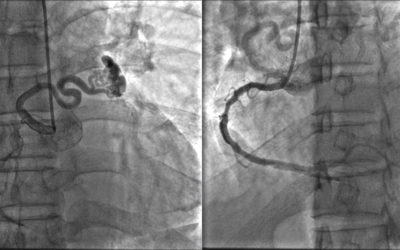AV Graft for Dialysis
If you have chronic kidney failure and need dialysis, you’ll first have a procedure to create a permanent access to your bloodstream (called vascular access surgery). This allows your blood to travel between your body and the dialysis machine at a high rate, so it be cleaned and filtered.
The vascular surgeons at Forrest City Medical Center specialize in the two main types of access procedures: arteriovenous (AV) graft and AV fistula. Your surgeon will work closely with you and your nephrologist to decide which option is best for your long-term needs.
Learn more about AV grafting below, and be sure to see our page on AV Fistula help understand the differences.
About the Procedure
During arteriovenous (AV) graft surgery, a strong artificial tube is inserted underneath the skin of either your arm or leg. You and your surgeon can decide together where to place the access site, which depends on the size on the condition of your veins and arteries. One end of the tube connects to your arteries, and the other connects to one of your veins in the same limb.
After the procedure, it usually takes two to four weeks for the graft to be ready for use. Your surgeon and nephrologist will ensure your procedure is scheduled well before you start dialysis. If your kidney disease has progressed quickly, you may need a venous catheter (thin, flexible tube) as a temporary access until your graft is placed.
AV Grafting Compared to AV Fistula
AV grafting is often the preferred option if your veins are small or blocked.
Unlike AV fistula, which uses your body’s own natural tissues, the AV graft is man-made, so there’s a higher risk of infection or clotting, and the graft may need to be periodically repaired or replaced. However, grafts don’t require as much time to settle in as fistulas, so you can often start dialysis sooner.
Recovery & Follow-Up Care
AV graft surgery is usually done on an outpatient basis with a local anesthetic and/or light sedative, allowing you to go home the same day and recover comfortably at home.
Since the graft is your lifeline, you’ll receive important instructions for cleaning and caring for the access site. Proper care helps ensure fewer problems with a better functioning and longer-lasting access.
At Forrest City Medical Center, your dedicated team is always here to answer questions and ensure your graft is working well, so you can feel your best.
To Find a Specialist
Call 870-261-0151
Related Services and Conditions
AV Fistula for Dialysis
If you have chronic kidney failure and need dialysis, you’ll first have a procedure to create a permanent access to your bloodstream (called vascular access surgery). This allows for a life-saving connection to the dialysis machine, which removes any toxins and...

